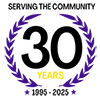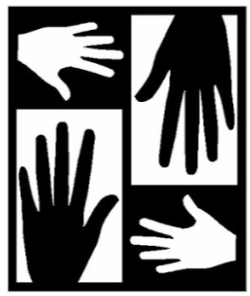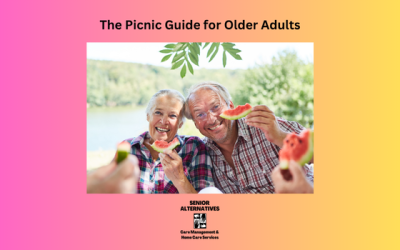December 3, 2020

The New York Times just published an article entitled, “How to be a Caregiver,” which outlines several useful strategies and advice from readers who are themselves caregivers. The entire article is a worthwhile read, though here’s a summary of what it had to say.
Rosalynn Carter, the former first lady who started the Rosalynn Carter Institute for Caregiving, famously stated that there are only four kinds of people in the world: those who have been caregivers, those who are currently caregivers, those who will become caregivers and those who will need caregivers.
Sometimes a person becomes a caregiver overnight after a health crisis, like a stroke or cancer diagnosis. But often, caregiving starts slowly with a few errands like picking up groceries. While you may not call yourself a caregiver, at some point it becomes clear that life has changed and you don’t have the freedom to go on vacation or out with friends unless someone else can step into your caregiving role.
Experienced caregivers also offer six personal strategies to guide you through the challenging times.
- Let the patient lead. Readers consistently talked about the importance of autonomy for the one receiving care. Include the person in care decisions whenever possible. Make sure doctors don’t talk as if the patient isn’t in the room.
- Focus on comfort. Let comfort, joy and pleasure be your guideposts. Try not to nag. Readers talked about the importance of small moments of shared joy — listening to swing music or a favorite crooner, playing card games and going for ice cream.
- Listen to the experts. Find experts to advise you, and listen to them. Arm yourself with information from caregiving organizations and support groups. Trust your instincts. Ignore most of the unsolicited advice you are likely to receive.
- Talk to other caregivers. Support groups will be one of your best resources.
- Take care of yourself. Even five- and 10-minute breaks during the day can help. Try keeping a gratitude journal, download a meditation app or do a six-minute workout to refresh your mind and body. Use adult day care or in-home caregivers from a care agency from time to time so you can take a break. Take up friends on their offers to help, even if it’s just to get your hair done. Exercising, sleeping and eating well will make you a better caregiver for your loved one.
- Shed the guilt. Guilt is a common theme here, but experienced caregivers say it’s important to know your limits, practice self-compassion, ask for help and remind yourself that the work you’re doing is difficult and important.
Prepare and Organize
Don’t put off the conversation. It’s never too soon to sit down with parents, siblings, children and friends to discuss long-term care plans. Use the 40-70 rule; by the time you are 40 or your loved one is 70, you should already be talking about it.
Step 1: Get Important Documents in Order. If there is any lesson from the pandemic, it’s that none of us knows what the future holds. We can be healthy today and face a dire health problem tomorrow.
Step 2: Organize Medical Information. Experienced caregivers say it’s essential to create a binder for medical information that you can carry with you to doctors; appointments. You’ll want to keep track of various health providers, insurance information and reimbursement, medications and notes about major health events and patient concerns.
Step 3: Assess the Home for Safety and Caregiving. Most people become caregivers to ensure that their loved one can stay in their own home or a family home or because they can’t afford an assisted living facility. But over time, it may become clear that modifications are needed.
Step 4: Plan for Change. While your goal may be to keep your loved one in a home setting, you still should investigate options for assisted living or nursing home care. Many of these facilities have waiting lists, so start your research early, just to be prepared.
Finding Help
A number of organizations focused on aging have websites packed with information. It’s likely there are care programs you didn’t know you needed — such as transportation help, home care services, adult day care and legal guidance, to name a few — so it’s worth taking the time to explore these offerings. Senior Alternatives offers a free 45-munite consultation to help with figuring out needed resources for elderly assistance and care at home.
The Importance of Self-Care
Caregivers are among the most-stressed individuals in the country, according to an annual report from the American Psychological Association. Every caregiver knows that self-care is essential. But finding time for it is easier said than done. If you leave it to chance, self-care won’t happen. That’s why it’s important to design a family respite plan that identifies your needs and wishes, as well as the types of help other people can provide. During a pandemic like COVID-19, taking personal precautions is even more important. Not only do you worry about protecting your patient from outside germs, but you must also try to protect yourself and stay well so you are able to care for your patient.
If you would like to read the entire article, click here: https://www.nytimes.com/guides/well/how-to-be-a-caregiver?action=click&module=Top%20Stories&pgtype=Homepage
Rosalynn Carter, the former first lady who started the Rosalynn Carter Institute for Caregiving, famously stated that there are only four kinds of people in the world: those who have been caregivers, those who are currently caregivers, those who will become caregivers and those who will need caregivers.
Related Articles
Summertime is here, let us help you plan the perfect picnic…
Summertime is a great time to enjoy the outdoors and plan a picnic, the perfect opportunity to bring joy especially for seniors in your life. With a bit of thoughtful preparation, you can create an experience that is both comfortable and memorable. To help you get started, here are some tips and ideas to plan a senior-friendly picnic that prioritizes accessibility, safety, and relaxation.
Boost Cognitive Function Through Brain Exercises
Just like the rest of your body, your brain changes and adapts over time. Through a concept known as neuroplasticity, your brain can form new connections, strengthen existing ones, and even recover lost abilities. Regular mental exercises can have a significant impact on your brain health. Read on to know more…
Why People in Blue Zones Thrive and Live Longer
Blue Zones are regions where people live longer, healthier lives compared to the global average. These areas have been studied extensively to find common denominators and answers about what makes these places unique. One of the key components of these lifestyles is community engagement, or having a strong sense of belonging and support from others. Read on to know more about Blue Zones and how we can duplicate their lifestyle and best practices.





